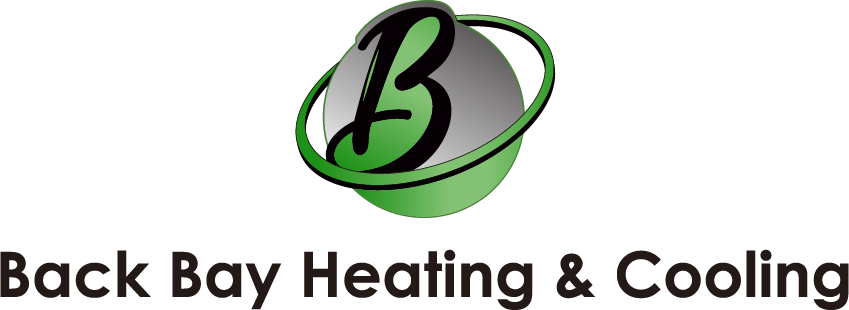How to Choose the Correct Size AC Unit for Your Cape Coral Home
Why Proper AC Sizing Matters in Cape Coral
Choosing the right size air conditioning unit is crucial for maintaining comfort and efficiency in your Cape Coral home. An improperly sized AC can lead to a host of problems, including high energy bills, inconsistent temperatures, and even damage to the system itself. In a city like Cape Coral, where heat and humidity are constants, an undersized unit will struggle to cool your home, while an oversized one may cycle on and off too frequently, leading to unnecessary wear and tear.
Proper sizing ensures that your AC unit operates efficiently, maintains ideal humidity levels, and lasts longer. By addressing these factors, homeowners can avoid costly repairs and replacements down the line. Ultimately, investing in the right-sized AC unit is about creating a comfortable living space while also protecting your wallet and the environment.
Understanding AC Capacity: Tons and BTUs Explained
Air conditioning capacity is measured in either tons or British Thermal Units (BTUs). A ton of cooling capacity is equivalent to 12,000 BTUs per hour, which measures how much heat the unit can remove from your home in that time. For Florida homes, especially in Cape Coral, the typical recommendation is around 20-25 BTUs per square foot due to the intense heat and humidity.
Knowing the difference between tons and BTUs helps homeowners understand what their AC units are capable of handling. While smaller homes might only need 1.5-2 tons of cooling power, larger homes could require 4-5 tons or more. Understanding these measurements ensures you're better equipped to discuss options with HVAC professionals and make informed decisions.
Standard Sizing Guidelines for Florida and Cape Coral Homes
In Florida, the general rule of thumb is that homes need higher-capacity AC units compared to those in cooler climates. For example, a home between 1,500 and 2,000 square feet typically requires an AC unit ranging from 2.5 to 3 tons. These guidelines account for the region's extreme heat and humidity, which demand more robust cooling solutions.
However, it’s important to remember that these are just starting points. Factors like insulation quality, window placement, and ceiling height can all influence the final recommendation. Cape Coral’s climate, in particular, means homeowners should expect to lean toward the higher end of the range when estimating their needs.
Main Factors Affecting Sizing Beyond Square Footage
While square footage is a key factor in determining AC size, several other elements play a role in ensuring accurate sizing. Ceiling height, for instance, affects the volume of air that needs cooling, while large windows—especially those facing south or west—can increase the heat entering your home. Insulation quality also matters, as poorly insulated homes lose cooled air faster, requiring a stronger AC unit.
Local shade provided by trees or neighboring buildings can reduce cooling demands, but the number of occupants and heat-generating appliances like stoves and dryers can have the opposite effect. Additionally, Cape Coral’s layout often includes open floor plans, which can impact airflow and temperature distribution. Considering these variables helps tailor the AC size to your specific home.
Taking all these factors into account ensures that your AC unit isn’t just a guess based on square footage but rather a thoughtful choice designed to meet your home’s unique needs. This approach is especially critical in Cape Coral, where the subtropical climate adds extra challenges to maintaining comfort.
Risks of Incorrectly Sized AC Units
An improperly sized AC unit can cause significant issues for homeowners. Undersized units may run continuously without effectively cooling the space, leading to skyrocketing energy bills and eventual system failure. On the flip side, oversized units tend to short cycle, meaning they turn on and off too frequently, which prevents proper humidity removal and results in uneven cooling.
Beyond discomfort, incorrect sizing can shorten the lifespan of your AC unit and lead to frequent repairs. Investing in the wrong size not only wastes money upfront but also creates ongoing inefficiencies. To avoid these pitfalls, it’s essential to prioritize accuracy during the selection process.
The Importance of Professional Load Calculations (Manual J)
The Manual J load calculation is considered the industry standard for determining the correct AC size for your home. This detailed assessment takes into account everything from room dimensions and insulation levels to window types and local weather patterns. Unlike rough estimates or DIY methods, a Manual J calculation provides precise data tailored to your home’s unique characteristics.
In Cape Coral’s demanding climate, relying on professional expertise ensures that your AC unit meets your cooling needs without overworking itself. Skipping this step can result in poor performance and wasted investment, so it’s always worth consulting a qualified HVAC technician who uses Manual J to guide their recommendations.
How to Measure Your Home and Estimate Your AC Size
To get a rough idea of your AC needs, start by measuring your home’s square footage. Multiply this figure by 20-25 BTUs per square foot—a range suitable for Florida’s climate—to estimate your base cooling requirements. For example, a 2,000-square-foot home would likely need between 40,000 and 50,000 BTUs, or roughly 3.5 to 4 tons of cooling capacity.
While these calculations provide a good starting point, they don’t account for all variables affecting your home’s cooling needs. That’s why it’s wise to consult a professional who can perform a comprehensive evaluation and refine your estimate. Their expertise ensures you’re investing in a system that delivers optimal performance.
Common Sizing Mistakes to Avoid
One of the most common mistakes homeowners make is choosing an AC unit based solely on square footage. This oversimplification ignores critical factors like insulation, ductwork condition , and window orientation, which can significantly impact cooling efficiency. Another frequent error is failing to update the AC size after renovations, such as adding new rooms or improving insulation.
Even some contractors fall into the trap of using outdated rules of thumb instead of conducting thorough assessments. Avoiding these pitfalls requires diligence and a willingness to seek professional guidance. Remember, precision pays off when it comes to selecting the right AC unit for your Cape Coral home.
Energy Efficiency and SEER Ratings: Why They Matter When Sizing
The Seasonal Energy Efficiency Ratio (SEER) measures how efficiently an AC unit operates over a cooling season. Higher SEER ratings indicate better energy efficiency, which translates to lower utility bills and reduced environmental impact. In Florida’s hot climate, opting for a high-SEER unit can make a noticeable difference in long-term savings.
While SEER ratings primarily affect operating costs rather than sizing, they’re still an important consideration. Pairing a properly sized AC unit with a high SEER rating ensures both comfort and cost-effectiveness. For Cape Coral homeowners, this combination is key to staying cool without breaking the bank.
Matching Your AC Size with Other Comfort Features
Advanced features like variable-speed blowers, zoning systems, and smart thermostats can enhance the performance of your AC unit and improve overall comfort. Variable-speed technology allows the system to adjust its output based on real-time cooling demands, making it ideal for homes with fluctuating temperatures. Similarly, zoning systems divide your home into sections, each with independent temperature controls, maximizing efficiency.
Smart controls add another layer of convenience, enabling remote adjustments and automated scheduling. These features work best when paired with a properly sized AC unit, ensuring seamless operation and maximum energy savings. For multi-story or larger homes in Cape Coral, integrating these technologies can make a significant difference in day-to-day comfort.
Signs Your Current AC May Be Improperly Sized
If certain rooms in your home never seem to cool down or if your AC runs constantly without achieving the desired temperature, these could be signs of improper sizing. Other red flags include excessive indoor humidity, frequent cycling on and off, and unusually high energy bills. Persistent repair issues might also indicate that your current unit is struggling to keep up with your home’s demands.
Addressing these symptoms early can save you from further discomfort and expenses. If you suspect your AC isn’t the right size, it’s worth consulting a professional to evaluate your system and recommend improvements. Upgrading to a properly sized unit can transform your living experience in Cape Coral’s challenging climate.
Choosing an HVAC Contractor in Cape Coral for Accurate Sizing
Finding a reputable HVAC contractor is essential for ensuring accurate AC sizing and installation. Look for professionals who emphasize performing full load calculations, such as the Manual J method, and demonstrate knowledge of Cape Coral’s unique climate challenges. Transparent communication and detailed estimates are also indicators of a trustworthy contractor.
Don’t hesitate to ask potential contractors about their experience and certifications. A qualified expert will take the time to assess your home thoroughly and explain their recommendations clearly. Partnering with the right contractor sets the foundation for years of reliable, efficient cooling in your Cape Coral home.
FAQ: Choosing the Right Size AC Unit for Your Cape Coral Home
What size AC unit do I need for a 2,000 square foot home in Cape Coral?
For a 2,000-square-foot home in Cape Coral, a 3–4 ton AC unit is typically recommended. However, factors like insulation quality, ceiling height, and sun exposure may alter this estimate. Consulting a professional ensures you get the most accurate sizing for your specific home.
Can I just use a simple square footage chart to pick my AC size?
While square footage charts offer a quick estimate, they don’t account for Cape Coral’s unique climate or individual home characteristics. For the best results, a detailed assessment incorporating factors like insulation and window placement is necessary.
What happens if my AC unit is too big for my house?
An oversized AC unit risks short cycling, poor humidity control, uneven temperatures, and wasted energy. It may cool the air quickly but fail to dehumidify effectively, leaving your home uncomfortable and inefficient.
Should I consider a larger AC because it’s hot in Florida?
Oversizing your AC simply because of Florida’s heat is not advisable. Instead, rely on a professional load calculation that considers all aspects of your home to determine the correct size for optimal performance.
Do higher efficiency (SEER) units affect required AC size?
Higher SEER ratings improve energy efficiency but don’t generally change the recommended tonnage. Both efficiency and proper sizing are important for achieving comfort and savings in your Cape Coral home.
Conclusion: Making the Right Choice for Comfort and Efficiency
Selecting the correct AC size is vital for maintaining comfort, controlling costs, and ensuring long-term performance in Cape Coral’s humid climate. From understanding BTUs and tons to considering advanced features and avoiding common sizing mistakes, every step contributes to finding the perfect fit for your home.
To ensure you’re making the best decision, consult with a professional who can perform a Manual J calculation and recommend energy-efficient, properly sized systems. Schedule a professional assessment or consultation today to guarantee your next AC unit meets your specific needs and provides years of reliable service.

